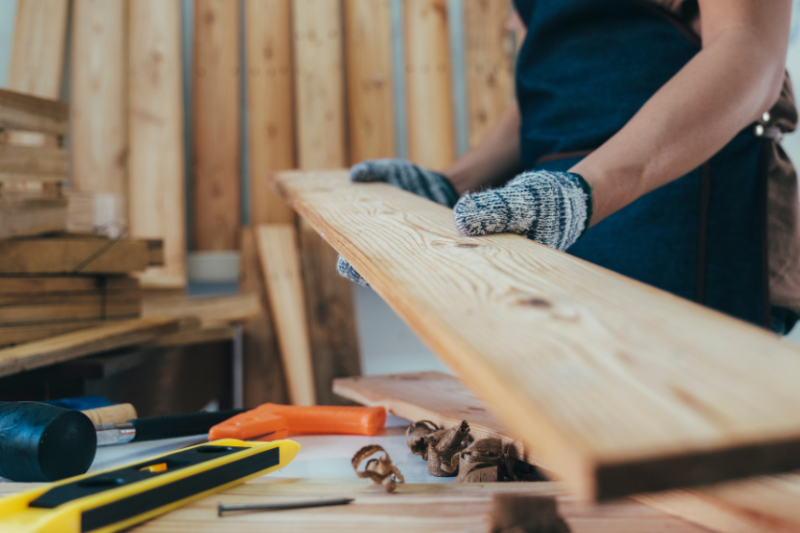
Whether you’re sprucing up a room or fixing a floorboard, it’s common to do the odd bit of DIY around your home.
But how does taking things into your own hands affect home insurance claims? If a DIY task goes wrong, can you claim on it?
Does my home insurance cover DIY accidents?
Sometimes, DIY projects can go wrong, causing damage to your home. For example, you might burst a pipe when drilling into a wall or spill a tin of paint on your carpet when decorating.
In general, it’s unusual for a standard home insurance policy to cover DIY unless you have accidental damage cover added to your policy. This covers you for certain accidents that cause damage to your home.
Even if you have both buildings and contents insurance combined, this doesn’t mean a DIY accident will definitely be covered by your insurer.
If a problem is caused by poor DIY workmanship (like a pipe that’s been fitted wrong or faulty wiring), your insurer may reject your claim.
This is why it’s important to only take on DIY tasks that you know you can do properly – and safely!
Does DIY work invalidate home insurance?
Doing DIY work doesn’t mean that your home insurance policy is invalid, but you should check with your insurer whether you need to declare any DIY work before you get started on it.
If you don’t tell your insurer about a big DIY project and something goes wrong down the line, you may not be covered.
Do I have to declare all DIY changes on my home insurance policy?
DIY projects can range from painting a room to renovating a roof (if you’re particularly skilled).
You don’t need to tell your home insurer about minor or cosmetic DIY projects, for instance:
- painting
- new carpets
- new light fixtures
But if you’re taking on a larger project, you may have to tell your insurer . This includes things like:
- adding an extension to your home
- renovating a roof
- converting a room into a bathroom
If you’re unsure whether your DIY project needs declaring (especially if it’s a larger renovation project), it’s best to check with your insurer first before you do anything.
What to do when larger projects or renovations are complete
If you’ve told your insurer about an upcoming DIY home renovation, they probably will have asked you to contact them once it’s complete.
It’s important you get in touch as soon as the work is finished, as it could affect your cover.
Do I need to declare garden DIY work?
Smaller garden projects like planting flowers, putting a lawn down and trimming trees don’t need to be declared to your home insurer.
If you’re thinking of doing a big DIY garden project, like digging a pond or building a shed, check with your insurer if it affects your policy before getting started.
Check out our other home DIY articles for more tips and advice.
Should I call a professional instead of doing it myself?
If you’re not sure whether you can take on a DIY task yourself, it might be best to call a qualified tradesperson.
Having a skilled person take care of a job will hopefully mean you avoid any mistakes and accidents, as long as you hire a reputable person!
It may be frustrating having to pay out, but it could cost you even more further down the line if you have to fix an issue that’s come from doing the DIY project yourself.
I have a DIY emergency. What do I do?
It depends on the type of emergency your DIY accident has caused:
- An emergency like a flood - tell your home insurer straight away to see if they can help.
- A fire - call the emergency services before you contact your insurer.
- A gas leak - call the National Gas Emergency Service on 0800 111 999 before your insurer.
You can get protection against unexpected incidents that need immediate attention if you have home emergency or home emergency extra cover added to your home insurance policy. This includes things like broken boilers and leaking pipes.
Head to our home emergency page to learn about what we offer and any limits or exclusions.


